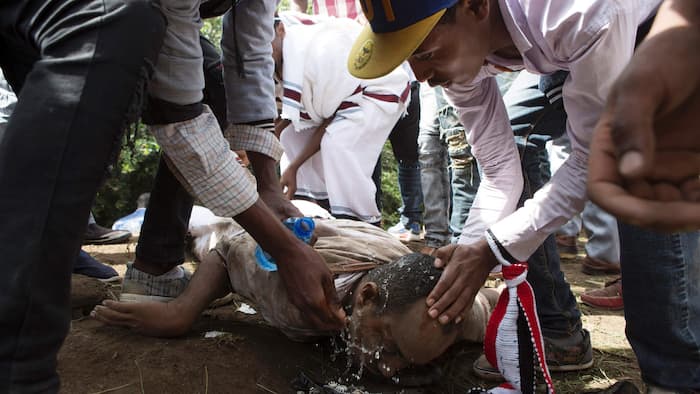Ethiopia’s ruling party has racked up genuine successes in the 25 years since seizing power. It has presided over some of the fastest economic growth in Africa while engineering significant improvements in education and healthcare, especially for the rural poor.
If these achievements are to be preserved, the ruling Ethiopian People’s Revolutionary Democratic Front needs urgently to make the transition to more open and inclusive government. On this, like other African liberation movements before it, it has lamentably failed.
Protests against the regime have been spreading for the past nine months and represent the most serious threat to stability since 1991. The rage sweeping the Oromia region surrounding Addis Ababa, the capital, is directed at perceived sources of the front’s legitimacy, notably its record in fostering development and creating jobs. According to officials, rose farms and factories together employing more than 40,000 people have been attacked in recent weeks.
This violence is self-defeating but it is also the inevitable consequence of the regime’s disproportionate use of force. The protests began following the announcement of plans to expand the territory administered by the city of Addis Ababa into Oromia, home to the Oromo, the nation’s most populous ethnic group. The government wisely backed down on the expansion plans. But the protests kept growing.
The Oromo resent the dominance of the Tigray ethnic group, which makes up 6 per cent of the population, in the military, in government and business. They have been joined by protesters from the Amhara, the second-largest ethnic group, in demanding more equitable power sharing, an end to land grabbing and corruption, and more political rights.
These legitimate demands have been met with brute force. According to human rights groups, security forces have killed more than 600 people since last year. In the latest incident that inflamed tensions, police opened fire at an Oromo cultural festival. Fifty-five people died in the ensuing stampede, according to the government; more than 100 according to rights groups. What started as a peaceful movement and then morphed into rioting, risks becoming an armed uprising.
After a political opening in the mid 2000s, Ethiopia has reverted to stifling dissent. With some justification, the Tigrayans fear that if they loosen their grip on power, they might quickly lose it altogether. However, recent official recognition that some reforms may be needed underestimates the level of public defiance. It goes nowhere near far enough to address the growing desire among Ethiopians for change.
Opposition groups are in no mood for compromise. Rather than sending in more troops, the government could start to change the dynamic by releasing political prisoners, thousands of whom are in jail. It could continue by unmuzzling the press and showing itself open to a debate about how the country is run.
Meanwhile, Ethiopia’s donor partners should be prepared to leverage the $3bn of aid they contribute each year to press the government to change course.
Ethiopia is seen in Washington and other western capitals as a bulwark of stability in a region replete with failed and failing states, an ally in the war on jihadist extremism and a capable development partner. But those very assets that make Ethiopia an invaluable ally are at risk.
© Alleastafrica and FT



